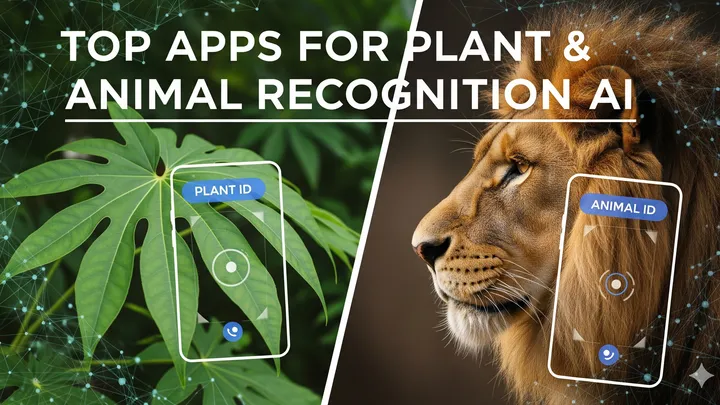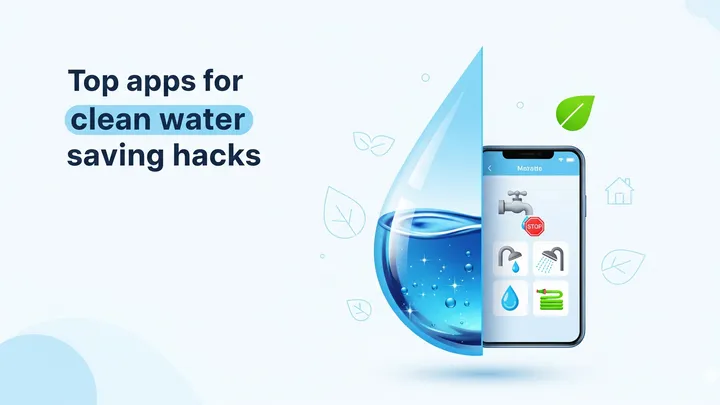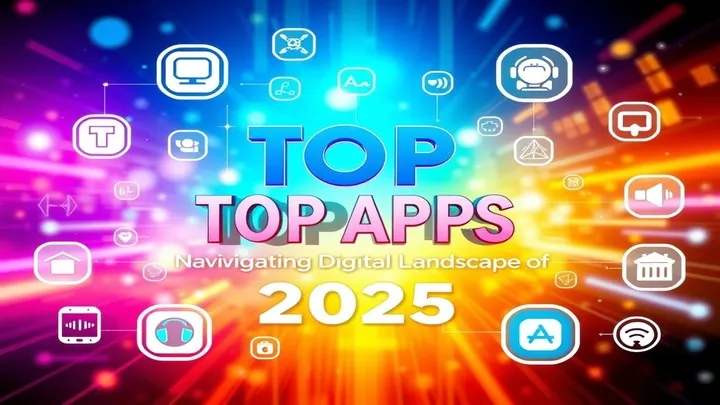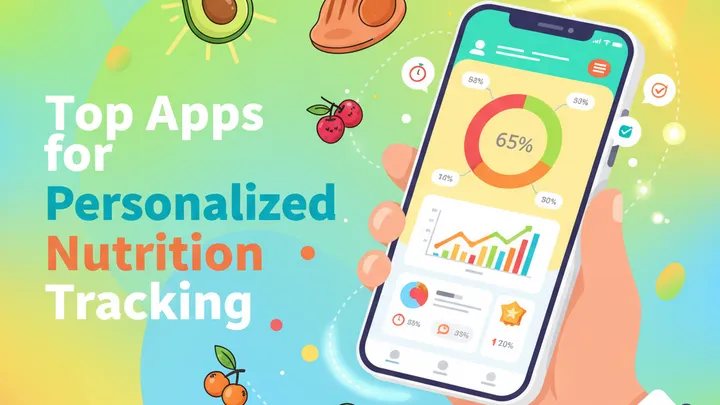In today’s fast-paced world, maintaining a balanced diet and staying on top of nutrition can be a challenge. Thankfully, technology has stepped in to help. Personalized nutrition tracking apps are revolutionizing the way we eat, offering insights into calorie intake, macros, hydration, and even genetic-based diet recommendations. Whether you’re aiming to lose weight, build muscle, or simply eat healthier, the right app can make all the difference.
In this article, we’ll dive into the top apps for personalized nutrition tracking, their unique features, and how they can transform your wellness journey.
1. MyFitnessPal – The All-in-One Nutrition Tracker
MyFitnessPal has long been one of the most popular nutrition apps, and for good reason. It offers a massive food database, barcode scanning, and customizable goal tracking. Users can log their meals, monitor macros, and even connect with fitness trackers like Fitbit or Apple Health.
What makes it powerful is its ability to adapt to personal goals. Whether you want to cut carbs, track protein for muscle gain, or monitor daily calorie intake, MyFitnessPal provides detailed breakdowns that make nutrition visible and actionable.
Key features:
- Barcode scanner for quick food logging
- Personalized calorie goals
- Macro and micronutrient tracking
- Integration with over 50 fitness apps
For beginners and experts alike, it remains a gold standard in nutrition tracking.
2. Cronometer – Precision Nutrition at Its Best
If you’re serious about micronutrient tracking, Cronometer is a standout choice. Unlike many apps that focus only on calories and macros, Cronometer digs deeper into vitamins, minerals, and other nutrients. This is especially helpful for people with specific dietary needs, like vegans or those with deficiencies.
Cronometer also offers customizable reports so users can track long-term progress. The premium version includes biometrics, fasting support, and integration with wearables.
Key features:
- Detailed micronutrient tracking
- Custom food and recipe entries
- Sync with fitness devices
- Reports for long-term nutrition insights
If you want science-backed, data-driven nutrition tracking, Cronometer is a powerhouse.
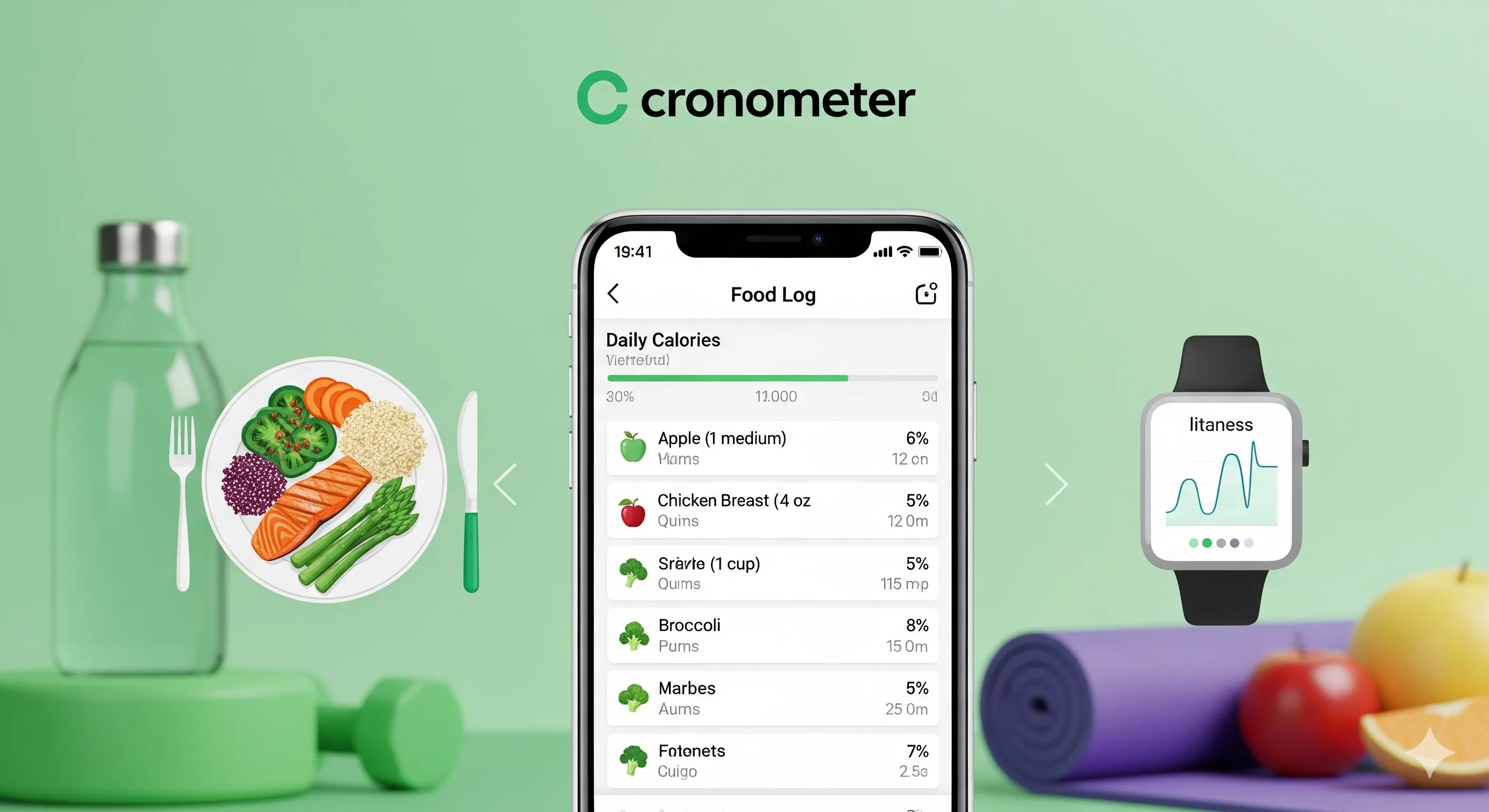
3. Lifesum – Personalized Plans for Every Lifestyle
Lifesum is a visually appealing app that focuses on making healthy eating simple and enjoyable. It provides personalized meal plans based on your lifestyle and goals, whether that’s weight loss, building muscle, or eating more plant-based foods.
Lifesum also includes a food rating system, helping users make smarter choices in real time. Its design makes it less intimidating than some other apps, making it perfect for beginners who want nutrition guidance without overwhelming detail.
Key features:
- Tailored meal plans (keto, paleo, plant-based, etc.)
- Food rating and suggestions
- Hydration tracking
- Integration with Apple Health and Google Fit
It’s ideal for anyone who wants personalized nutrition with a touch of motivation and simplicity.
4. Noom – Psychology Meets Nutrition
Unlike most apps, Noom takes a behavioral approach to nutrition. It doesn’t just track calories—it focuses on building sustainable eating habits through psychology. Noom categorizes foods into color groups (green, yellow, red) to guide healthier decisions, while also offering coaching and lessons on mindful eating.
It’s especially helpful for people who struggle with yo-yo dieting or emotional eating. By combining food tracking with cognitive behavioral therapy principles, Noom offers a unique approach to long-term success.
Key features:
- Personalized coaching and support
- Psychology-based food categories
- Behavior tracking and habit building
- Interactive lessons on nutrition and health
For those looking to change their relationship with food, Noom provides more than just calorie counting—it provides perspective.
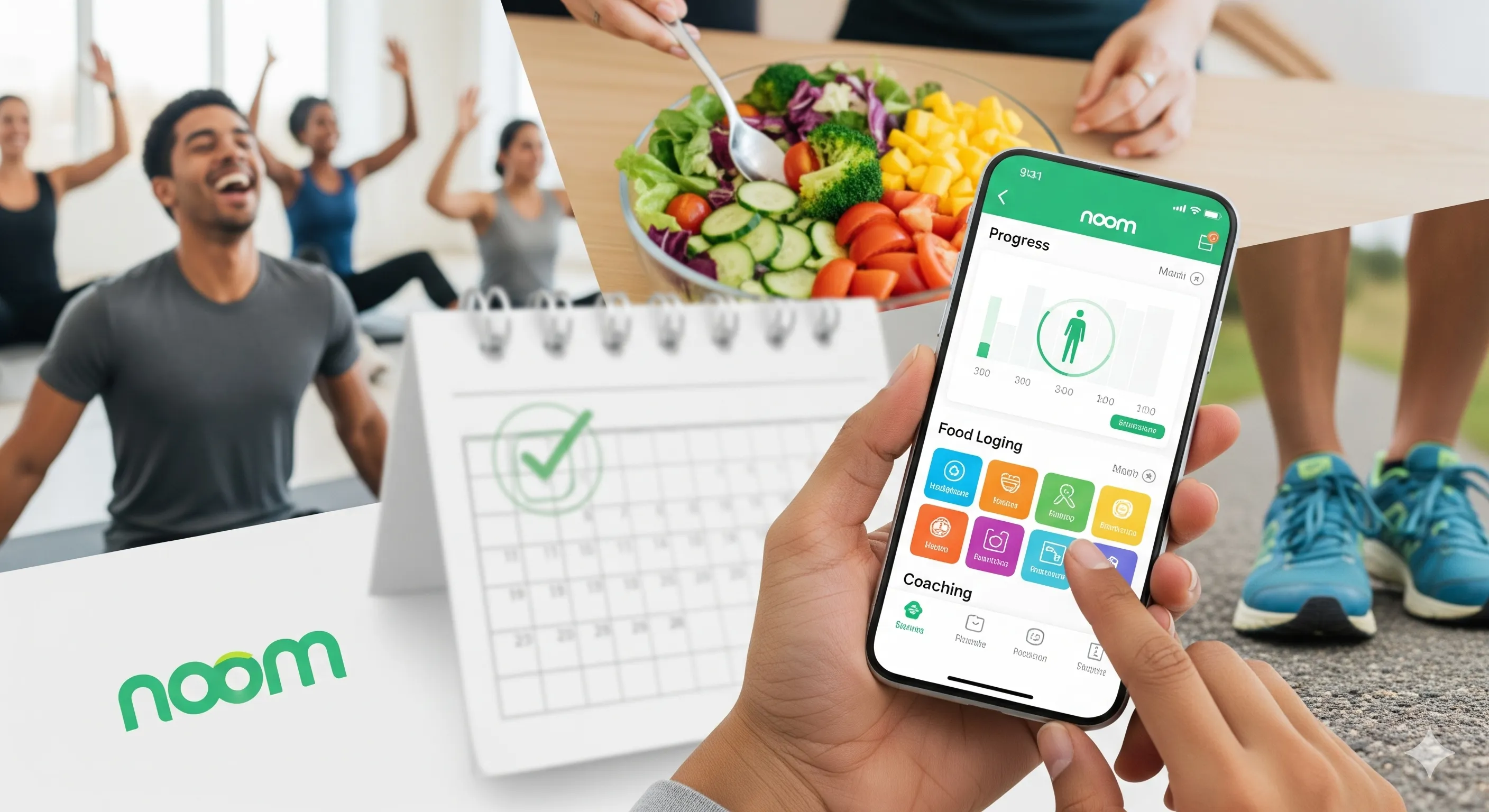
5. Yazio – Custom Nutrition with Fasting Options
Yazio is a rising star in the nutrition tracking world, offering personalized diet plans along with fasting support. Whether you’re intermittent fasting, keto, or just aiming for balanced eating, Yazio helps tailor your nutrition to fit your goals.
It includes detailed macro tracking, recipe ideas, and progress reports. For those who want a structured plan without being overwhelmed, Yazio is a solid option.
Key features:
- Intermittent fasting timer
- Custom meal and diet plans
- Calorie, macro, and nutrient breakdowns
- Recipe library with nutrition details
Yazio shines for users who like flexibility combined with structure, making it a great alternative to more rigid apps.
6. Ate Food Journal – Mindful Eating Simplified
Unlike most calorie-counting apps, Ate Food Journal takes a mindfulness approach to eating. Instead of focusing on numbers, it encourages users to reflect on their meals by logging photos, emotions, and hunger levels.
This is particularly useful for people who find strict calorie tracking stressful or unsustainable. By focusing on behavioral awareness, Ate Food Journal helps users build a healthier relationship with food.
Key features:
- Photo-based food logging
- Encourages mindful eating habits
- Focus on emotions and behaviors
- No calorie-counting pressure
If you want a break from calorie obsession and instead focus on how and why you eat, Ate is an excellent choice.
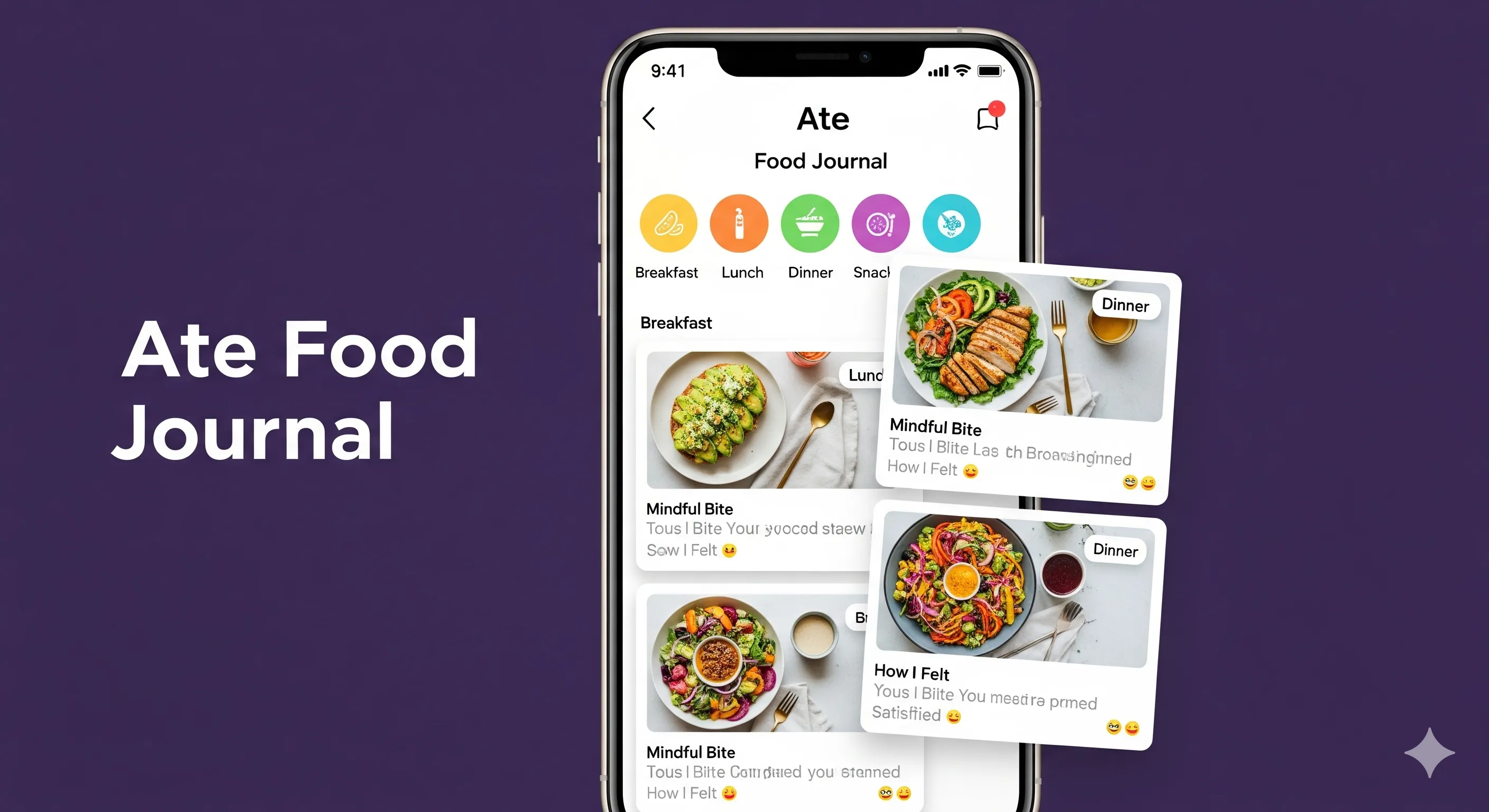
Why Personalized Nutrition Tracking Apps Matter
Personalized nutrition is more than just counting calories—it’s about aligning food choices with your body’s unique needs. These apps offer:
- Awareness: Visualizing eating habits helps identify areas for improvement.
- Motivation: Goal tracking and reminders encourage consistency.
- Customization: From keto to vegan, apps adapt to dietary preferences.
- Accountability: Progress reports keep you focused on long-term goals.
With the help of these apps, healthy eating becomes more intuitive, data-driven, and sustainable.
Tips for Choosing the Right Nutrition App
Not every app will be the perfect fit. Here are some tips to guide your choice:
- Define your goal – Weight loss, muscle gain, mindful eating, or better nutrient balance.
- Consider your style – Do you like numbers and details (Cronometer), or simplicity and coaching (Noom, Ate)?
- Check integrations – If you use wearables like Fitbit or Apple Watch, pick an app that syncs.
- Think about long-term use – Choose an app you’ll actually enjoy using daily.
The best app is the one that fits seamlessly into your lifestyle while helping you stay accountable.
Conclusion
Nutrition tracking apps are no longer just calorie counters—they are personal health companions designed to support your unique journey. From the detailed precision of Cronometer to the psychology-driven insights of Noom, each app offers something different.
By choosing the right app for your goals, you can transform your eating habits, gain better awareness of your health, and build a sustainable path to wellness.
The future of healthy living lies in personalized nutrition, and these apps put the power of science and technology right in your hands.








